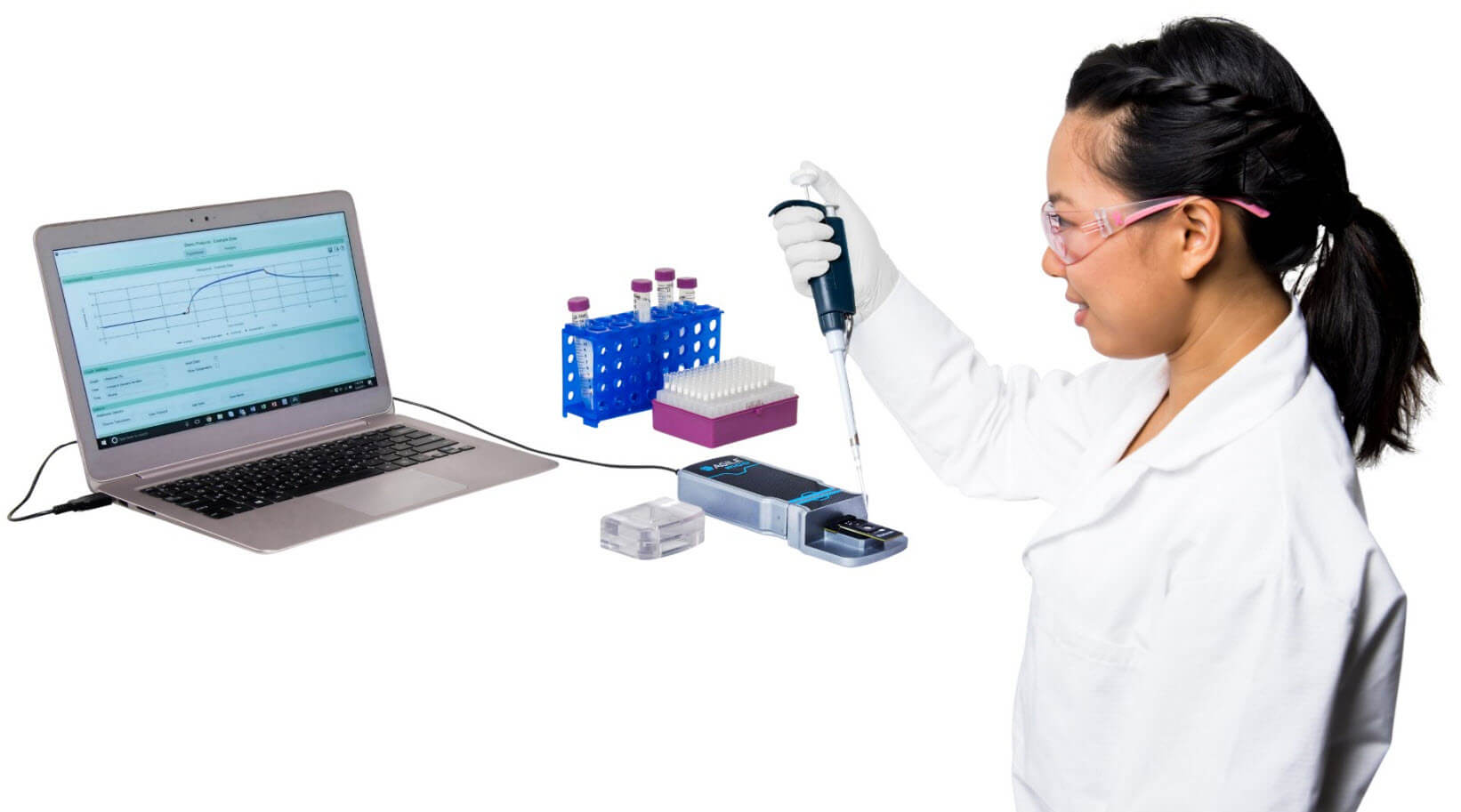
Accomplishment
Through a partnership with precision MEMS foundry Rogue Valley Microdevices, Biotech company Nanomedical Diagnostics has introduced the first mass-produced graphene biosensor available, Agile R100.
What’s was the challenge?
• Drug discovery today is a laborious and costly process. To evaluate new drugs, most researchers test candidate compounds using expensive and complex laboratory equipment. Special training is a requirement, and testing can take days or weeks.
What do they offer?
• Nanomedical Diagnostics offers an alternative technology to the expensive and resource-intensive surface plasmon resonance (SPR) and bio-layer interferometry (BLI) tools generally used today. The company’s novel sensing technique — which features the world’s first commercially available graphene biosensor — allows pharmaceutical and biotherapeutics companies to characterize biomolecules quickly and easily, transforming the field of drug discovery.
Why graphene?
Graphene is one of the world’s most versatile material capable of revolutionizing biomedical applications due to its excellent electrical conductivity, high surface area and unique bio-compatibility. However, it is notoriously difficult with which to work – as manufacturing with graphene is largely undocumented.
How did they do it?
They partnered with Rogue Valley Microdevices. After doing some pre-processing, Rogue Valley Microdevices ships the wafers to Nanomedical Diagnostics. Using the highest-quality graphene, Nanomedical Diagnostics handles graphene growth and deposition in a clean and non-destructive way without the use of harsh chemicals.
Rogue Valley Microdevices completes the MEMS device fabrication process, which produces several hundred chips from each finished wafer. The end-result is the first commercially available graphene biosensor.



